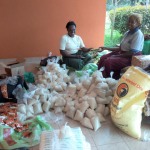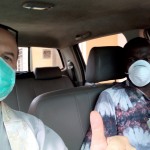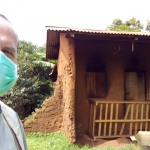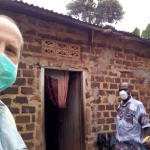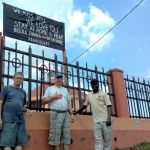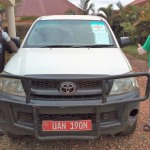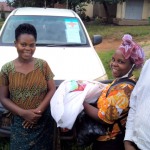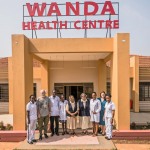This year, Lent has been extended. It has gone beyond retreats for small groups of parishioners or community members. The new virus has forced the whole world to go on retreat.
Everyone is locked down at home. It is almost like being in a cloistered Order, such as the Poor Clares. All of us who are cloistered now have a chance to examine our lives from within. It is a good time to ask what is most important to us. Unfortunately, this virus is not only present in Uganda; it has spread to Kenya and other neighboring countries. Uganda, too, has its share of people who travel and work abroad. However, such travel occurs on a lesser scale compared to Europe, since most Ugandans do not have a passport. Nevertheless, the virus showed up anyway.
According to official statistics from the Ugandan government, fifty-three people are infected with the new virus. After the first case was discovered about two weeks ago, the government took radical preventive measures. It has closed all schools, universities and places of worship, including churches and mosques. It has closed shops, bars and restaurants and only allows suppliers of food and medical services to remain open. It has totally banned movement at night and has imposed a curfew from 7:00 p.m. to 6:30 a.m. It has adopted other special restrictive regulations, as well.
What does this mean for Uganda? It means that millions of people working in transportation, commerce and other areas have lost their jobs overnight. Most of these people earn around three euros a day. They barely make enough to feed themselves and their families. At present, there is enough food on hand, but if this quarantine is prolonged, no one knows what will happen. Government employees are already supplying food to the poorest people, particularly in overpopulated and jobless areas.
Government hospitals have been selected across the country with areas set aside to take in Covid-19 patients. However, there are serious doubts about how well these facilities will perform. One could certainly go to the hospital in Kampala, Uganda’s capital city, and be tested for infection. Uganda is similar in size to Poland; but one does not need to be a great economist to know that this crisis will erase whatever economic gains had been achieved until now.
For us pastors and missionaries, the churches must still remain closed for prayer. Thus, the friars pray in their friary. The Order of Friars Minor Conventual is both contemplative and active. Now is the time for contemplation. Someone pointed out an obvious truth: the Church has not been closed; the Church, as a community sent forth to preach the Gospel, is always on a mission. During Lent, the friars visited the sick and administered the sacraments to them. At that time, the friars visited around two hundred families.
Most Ugandans have no pension. The sick and elderly must depend on whatever family they have in the area. The friars have obtained permission from local authorities to travel by car, so they serve at the Wanda Health Center Hospital in Matugga. The friary car is used almost like an ambulance. The confreres constantly watch to see how the situation will unfold; no one knows what will happen tomorrow.
We wish to thank the Polish government, the Ministry of Foreign Affairs and other ecclesiastical institutions for their offer to return us to Poland via special flights. However, the friars have chosen to remain. A missionary’s home is the house where he currently lives. One does not learn heroics from Africa, one learns humility. The friars are only following their call.
In Africa there are worse problems than coronavirus; for example, northern Uganda is currently plagued with locusts. Africa is also threatened by the Ebola virus, which kills 70% of those infected. Ebola is transmitted the same way as Covid-19, but it appears at random and disappears on its own after some time. There is typhus caused by dirty water and 10% of the population has the HIV virus. Finally, there is malaria, which is as commonplace as influenza. We believe that with God’s help, Covid-19 will also pass and with human solidarity, anything can be overcome. This experience will probably make us better, more alert and more sensitive to other people.
Currently, there is no vaccine or medicine for this new virus. This makes Africa the same kind of fiery furnace that Shadrach, Meshach, and Abednego had to face. They refused to worship the golden statue which King Nebuchadnezzar had set up (cf. Dn 3). They were unwilling to pay such a price to spare their lives. Therefore, all they had to rely on was prayer and worship. God saved them and helped them pass through the fire unharmed.
Finally, we should remember the “adopt-a-doctor” initiative for medical personnel who are serving others instead of being locked down at home. Let us join in prayer for them. Let us show solidarity in practice, not just words; faith without works is dead (cf. Ja 2:17).
May the Risen Jesus always save us from falling, from disease, and from powerlessness. May he grant us peace and life. God bless you!
Friar Adam KLAG







